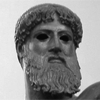- 23 Oct 2013 19:54
#14319083
Extreme libertarianism is based on two ridiculous premises: that the capitalist system could sustain itself without the state; and that unrestricted relations between the capitalist class and workers would grant workers agency.
Both notions are absurd, for different reasons. First of all, asserting that the capitalist mode of production could function without the state is being purposefully ignorant of history and reality. Not only is the role the state plays in a capitalist economy inseparable from its continuity, in terms of [temporarily] fixing the crises of over-production and over-accumulation (see: Creative destruction) and keeping the exploited classes at bay, but also in terms of keeping an economy relevant on the global scale (hegemony, imperialism, scare-tactics etc).
The undeniable truth of reality is that the state, just as it always has, is used by the ruling class to maintain power.
The second notion, that unrestrained capitalism (which is just hollow intellectual claptrap), given the opportunity to be solely driven by 'market forces', would allow all participants to have full agency, is as much offensive as it is divorced from reality. To believe that workers have any agency now, with social programs and propaganda coups attempting to axe and shatter revolutionary spirit, is absurd. But to propose that full agency would be realised without the deceiving tactics produced by the milquetoast puppets of the Wall Street oligarchs running the show, is almost hilarious.
Both notions are absurd, for different reasons. First of all, asserting that the capitalist mode of production could function without the state is being purposefully ignorant of history and reality. Not only is the role the state plays in a capitalist economy inseparable from its continuity, in terms of [temporarily] fixing the crises of over-production and over-accumulation (see: Creative destruction) and keeping the exploited classes at bay, but also in terms of keeping an economy relevant on the global scale (hegemony, imperialism, scare-tactics etc).
The undeniable truth of reality is that the state, just as it always has, is used by the ruling class to maintain power.
Marx wrote:The executive of the modern state is nothing but a committee for managing the common affairs of the whole bourgeoisie.
The second notion, that unrestrained capitalism (which is just hollow intellectual claptrap), given the opportunity to be solely driven by 'market forces', would allow all participants to have full agency, is as much offensive as it is divorced from reality. To believe that workers have any agency now, with social programs and propaganda coups attempting to axe and shatter revolutionary spirit, is absurd. But to propose that full agency would be realised without the deceiving tactics produced by the milquetoast puppets of the Wall Street oligarchs running the show, is almost hilarious.


















 - By Rancid
- By Rancid - By Tainari88
- By Tainari88